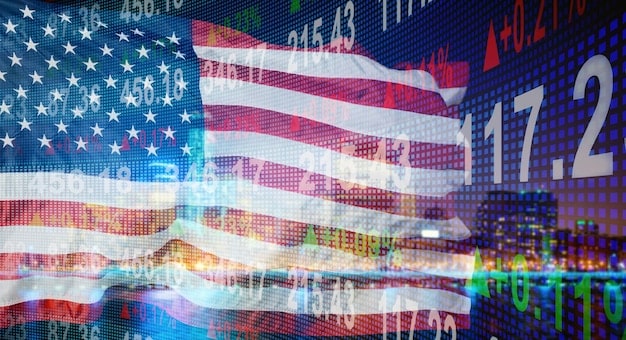US Election Cycle: How It Shapes Foreign Policy in the Next Year

The US election cycle significantly influences foreign policy decisions in the subsequent 12 months by creating uncertainty, shifting priorities, and potentially leading to policy adjustments based on anticipated or actual electoral outcomes.
The impending US election cycle casts a long shadow on global affairs, directly influencing the nation’s foreign policy decisions. Understanding How Will the US Election Cycle Influence Foreign Policy Decisions in the Next 12 Months? is critical for governments, businesses, and individuals engaged in international relations.
Election Year Geopolitics: Anticipating Shifts in US Foreign Policy
Presidential election years are often marked by increased caution and strategic recalibration in US foreign policy. The inherent uncertainty of electoral outcomes can freeze certain initiatives, while simultaneously encouraging others aimed at bolstering domestic support.
Impact on Trade Negotiations
Trade negotiations are particularly vulnerable during election years. The administration may hesitate to make significant concessions or push through controversial trade deals, fearing backlash from voters.
- Delay in New Agreements: Progress on new trade agreements often stalls.
- Review of Existing Policies: Existing trade policies come under increased scrutiny.
- Focus on Domestic Industries: Greater emphasis is placed on protecting domestic industries.
In conclusion, during election years, US Trade negotiations are often affected as concessions may be avoided due to the vulnerability the leaders may feel.

National Security and Defense Strategies During Elections
National security considerations tend to take center stage during US election campaigns. Candidates often try to project an image of strength and decisiveness, which can impact military deployments, defense spending, and international alliances.
Military Deployments and Posturing
With election years approaching, the use of military deployment may be higher due to a need for politicians to give a message of seriousness when it comes to the security of the country.
Defense Spending Priorities
Election cycles often lead to shifts in defense spending priorities. Politicians might push for increased funding for specific programs popular among their constituents or strategically allocate resources to swing states.
To summarise, security of the country plays a vital role during elections to prove one as a potential and trustful leader.
The Role of Public Opinion in Shaping Foreign Policy
Public opinion plays a significant role in shaping US foreign policy, especially during election years. Candidates and parties closely monitor public sentiment on international issues and tailor their platforms accordingly.

Media Influence and Agenda Setting
The media plays a crucial role in shaping public opinion on foreign policy issues. Candidates and parties work closely with media outlets to frame their messages and influence the narrative.
- Increased Media Scrutiny: Heightened media coverage of foreign policy decisions.
- Candidate Messaging: Candidates tailoring their messages to resonate with public sentiment.
- Framing of Issues: Media outlets framing international issues in specific ways.
Media plays a huge role in the decision making and views of the general public, this is why politicians use the media in a strategic way.
US Relations With Key Allies and Adversaries
The US election cycle can introduce both opportunities and challenges in its relations with key allies and adversaries. Allies may seek reassurances about the continuity of partnerships, while adversaries might test the resolve of the outgoing or incoming administration.
Impact on International Agreements
The election cycle impacts international agreements, that the US has, sometimes there may be changes with allies as well as adversaries.
Managing Relations with Adversaries
Election years may embolden adversaries to test US resolve. The administration must balance the need to project strength with the desire to avoid escalating tensions.
To finalise, election cycles may be taken as an inspiration for different countries to test the new incoming administration.
Economic Diplomacy and International Trade Relations
Economic diplomacy and international trade relations are significantly affected by the US election cycle. The administration’s approach to trade negotiations, sanctions, and economic aid can shift depending on domestic political considerations.
Sanctions and Trade Restrictions
Election-year politics often lead to greater use of sanctions and trade restrictions as tools of foreign policy. These measures can be popular with certain segments of the electorate and signal a tough stance on international issues.
- Increased Use of Sanctions: More frequent use of economic sanctions against adversaries.
- Trade Restrictions: Imposition of trade restrictions to protect domestic industries.
- Economic Aid: Strategic allocation of economic aid to key allies and partners.
Economic diplomacy is highly affected by the election year.
The Next 12 Months in Foreign Policy: A Checklist for Stakeholders
For stakeholders navigating the next 12 months of US foreign policy under the influence of the election cycle, a proactive and informed approach is essential. Here’s a checklist to stay ahead of potential shifts and uncertainties.
Monitoring Key Indicators
Keep a close watch on economic indicators, geopolitical hotspots, and domestic political developments. These factors can provide early warning signs of potential shifts in US foreign policy.
- Economic Trends: Tracking economic indicators that may influence trade policy.
- Geopolitical Hotspots: Monitoring regions where conflicts or instability could trigger US intervention.
- Domestic Politics: Following key political events, such as debates, primaries, and polls.
It is very important to monitor the ongoing international status in order to make wise and thoughtful decision.
| Key Point | Brief Description |
|---|---|
| 🇺🇸 Election Caution | Uncertainty leads to cautious foreign policy moves. |
| 🛡️ Security Focus | Emphasis on national security and defense strategies. |
| 📢 Public Opinion | Public sentiment shapes candidate platforms. |
| 🤝 Ally Relations | Allies seek reassurance during transitions. |
FAQ
Election years often stall progress on new trade agreements as administrations avoid controversial decisions that could impact voters.
Public opinion significantly influences foreign policy as candidates tailor their platforms to align with voter sentiment on international issues.
Allies may seek reassurances about the continuity of partnerships, while adversaries might test the resolve of the current or incoming administration.
Sanctions and trade restrictions are often employed to signal a tough stance on international issues and protect domestic industries, appealing to voters.
Stakeholders should closely monitor economic indicators, geopolitical hotspots, and domestic political developments to anticipate potential shifts in US foreign policy.
Conclusion
The US election cycle inevitably shapes foreign policy decisions for the next 12 months, bringing both challenges and opportunities. Stakeholders who stay informed, adapt quickly, and anticipate shifts in approach can navigate this complex landscape effectively, contributing to more stable and predictable international relations.





